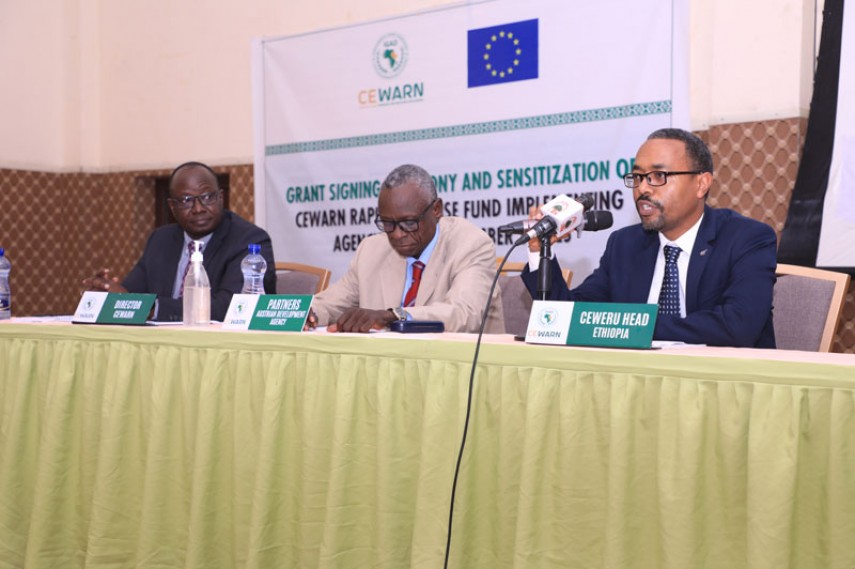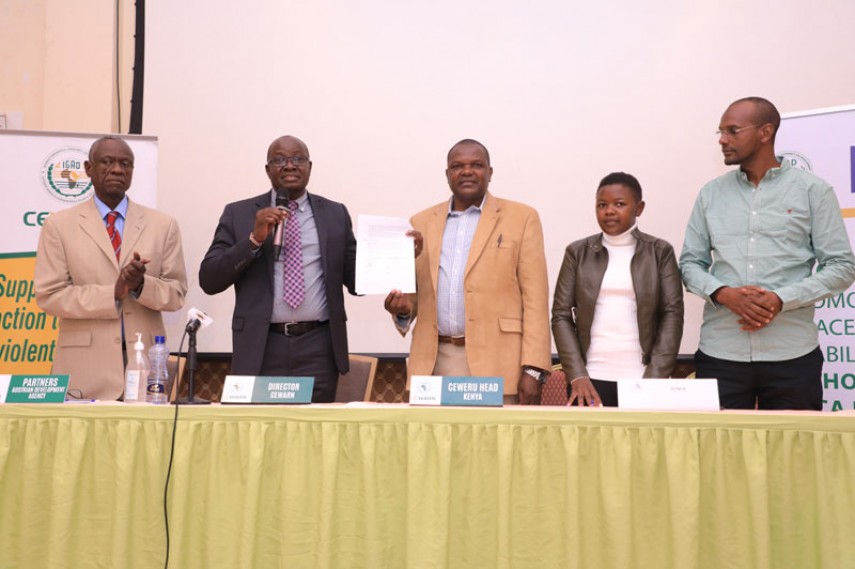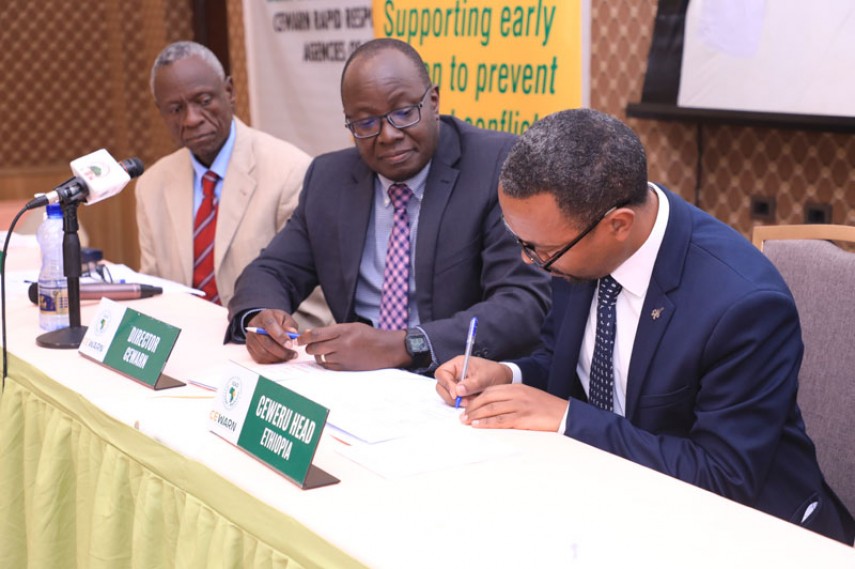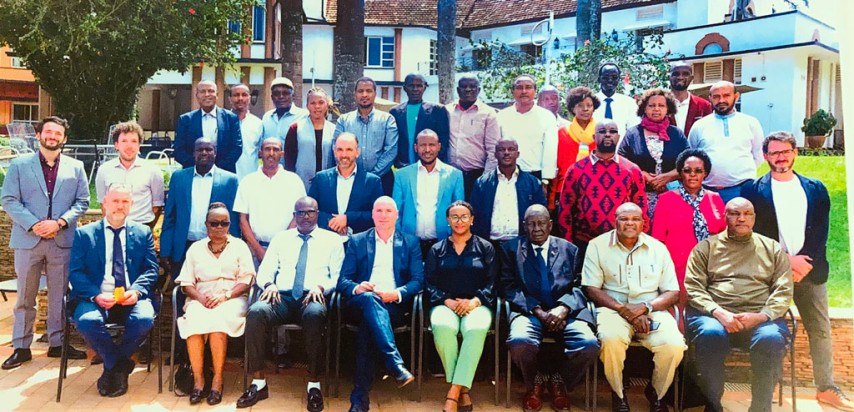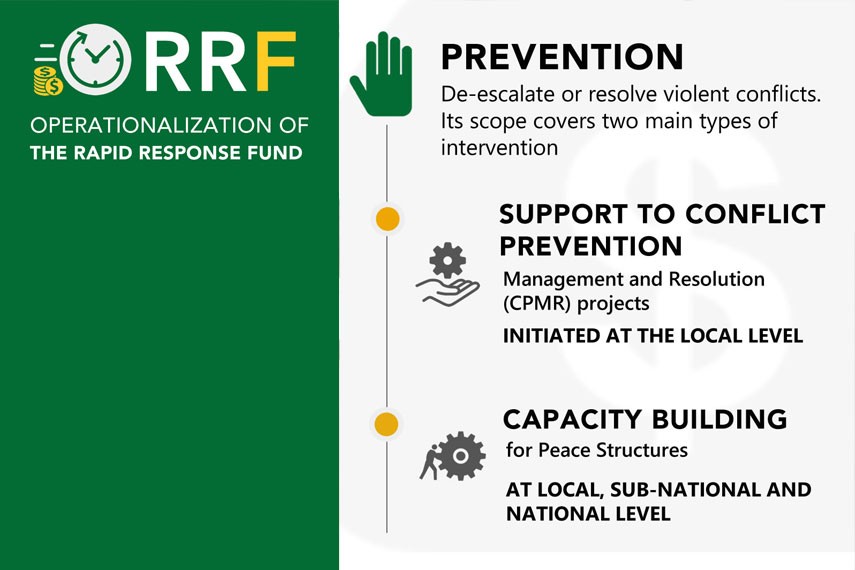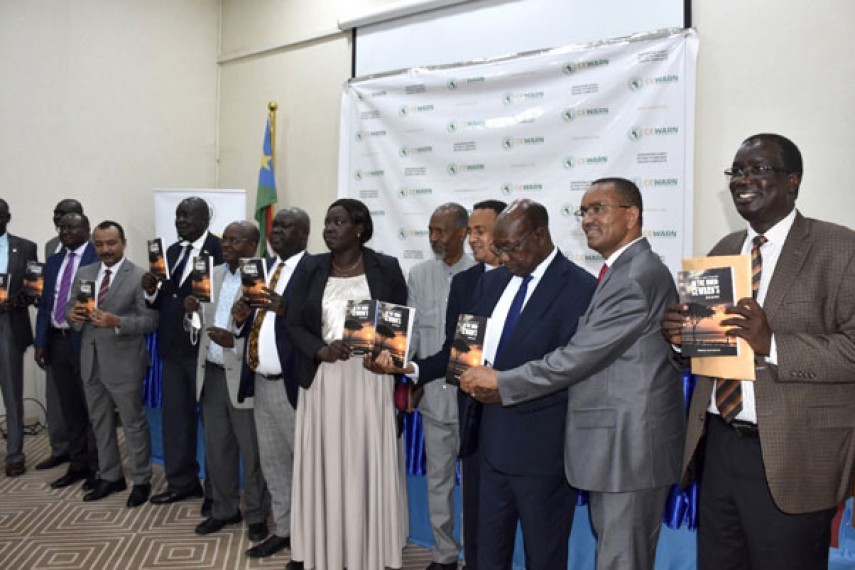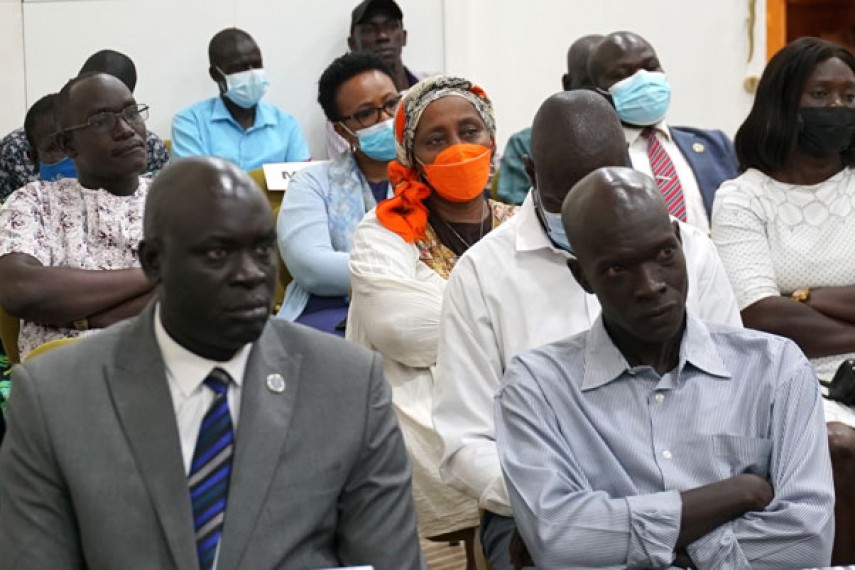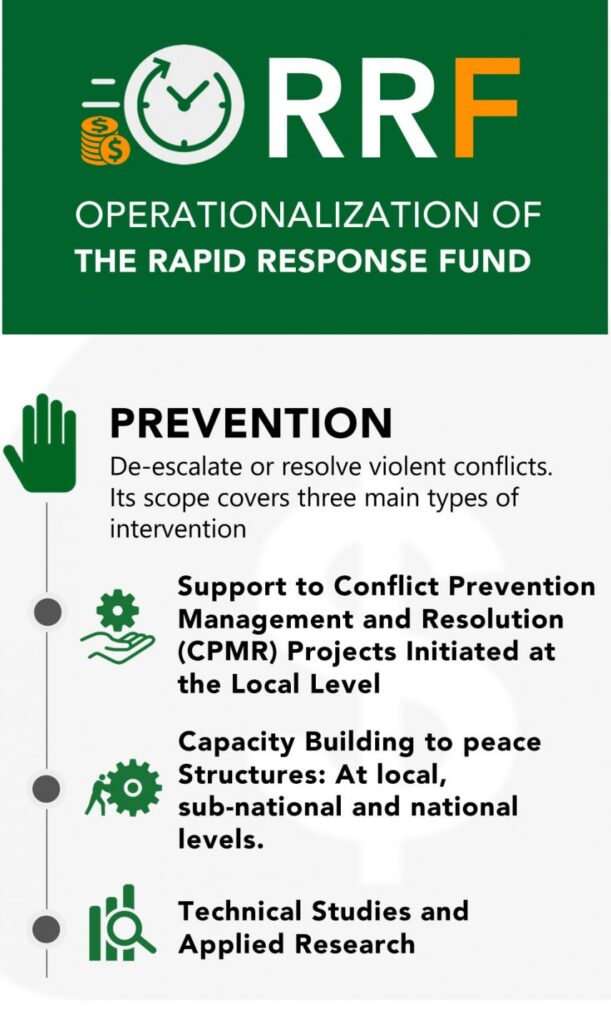CEWARN rolls out support to twelve conflict mitigation projects across IGAD region
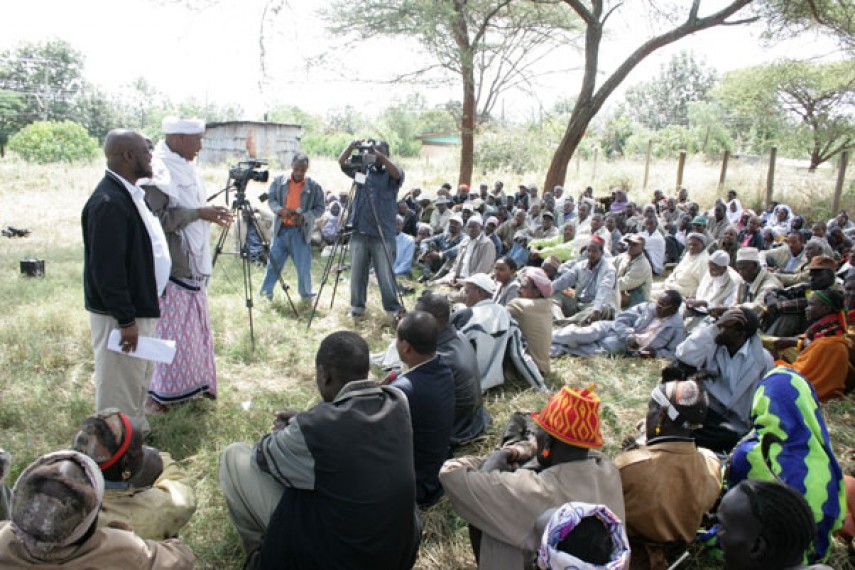
CEWARN is currently supporting twelve Rapid Response Fund (RRF) projects with a combined worth of Euro 371,522 targeting six IGAD Member States. The projects are intended to support short-medium term conflict prevention initiatives across the seven IGAD Member States of IGAD, namely, Djibouti, Ethiopia, Kenya, Somalia, South Sudan and Uganda.
Following a rigorous review and approval of these proposals for funding, CEWARN has signed grant agreements with national conflict early warning and response units in these countries that oversee the implementation of these projects. Refer to attached matrix for further detail on these projects.
The European Union (EU) is the main contributor of RRF funds. The European Union and the Austrian Development Agency supported the organization of the signing ceremony through the IGAD Promoting Peace and Stability in the Horn of Africa Region (IPPSHAR) Programme.
